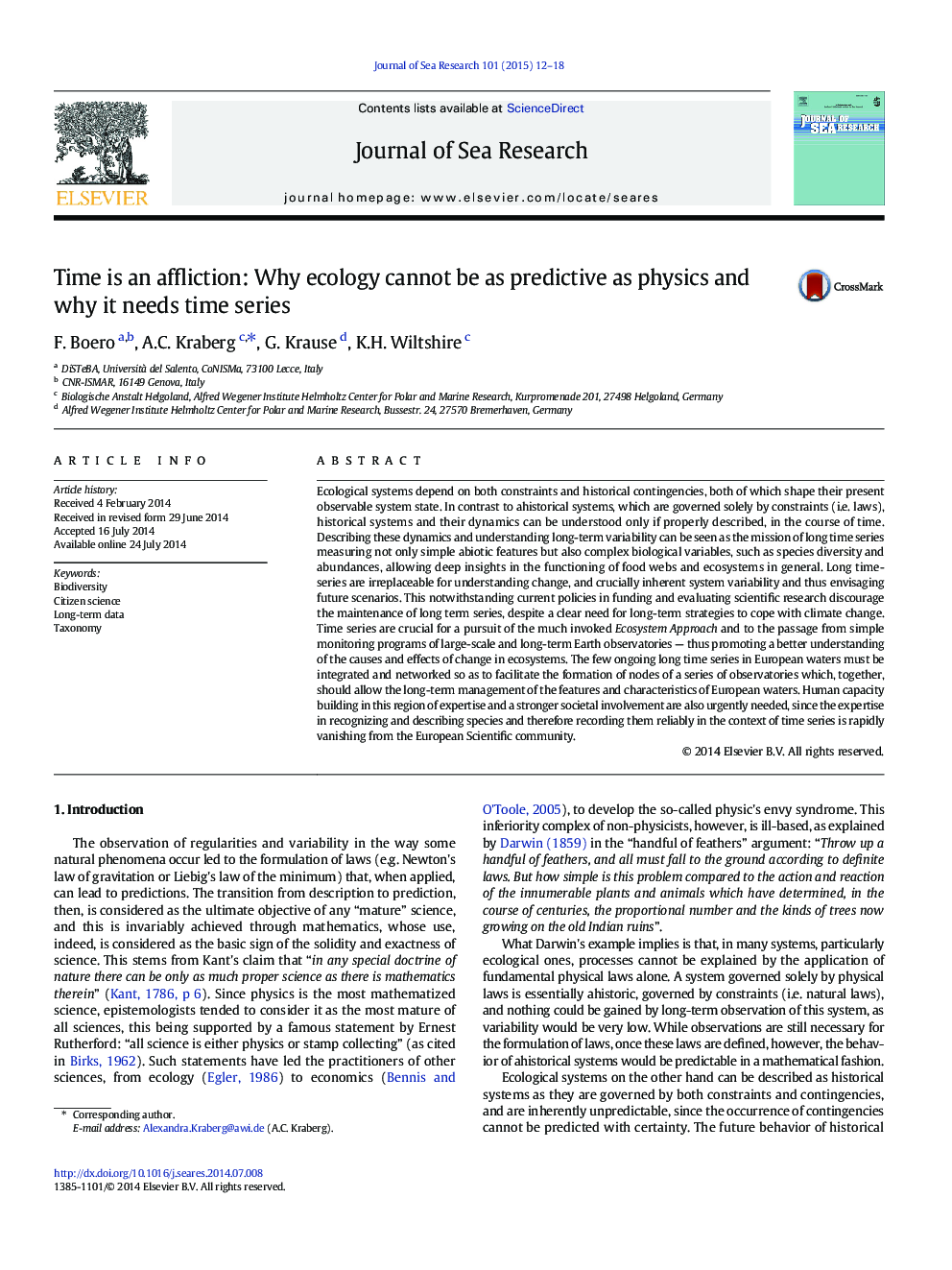| Article ID | Journal | Published Year | Pages | File Type |
|---|---|---|---|---|
| 4549579 | Journal of Sea Research | 2015 | 7 Pages |
•Ecosystems are driven by constraints (laws) and contingencies (irregular events).•Reliable time series data are vital to understand such constraints and contingencies.•Marine Research stations are ideally placed to collect and network these data.•Paradoxically many marine stations face financial problems and a lack of acceptance.•New funding strategies for the long-term support of such marine stations are needed.
Ecological systems depend on both constraints and historical contingencies, both of which shape their present observable system state. In contrast to ahistorical systems, which are governed solely by constraints (i.e. laws), historical systems and their dynamics can be understood only if properly described, in the course of time. Describing these dynamics and understanding long-term variability can be seen as the mission of long time series measuring not only simple abiotic features but also complex biological variables, such as species diversity and abundances, allowing deep insights in the functioning of food webs and ecosystems in general. Long time-series are irreplaceable for understanding change, and crucially inherent system variability and thus envisaging future scenarios. This notwithstanding current policies in funding and evaluating scientific research discourage the maintenance of long term series, despite a clear need for long-term strategies to cope with climate change. Time series are crucial for a pursuit of the much invoked Ecosystem Approach and to the passage from simple monitoring programs of large-scale and long-term Earth observatories — thus promoting a better understanding of the causes and effects of change in ecosystems. The few ongoing long time series in European waters must be integrated and networked so as to facilitate the formation of nodes of a series of observatories which, together, should allow the long-term management of the features and characteristics of European waters. Human capacity building in this region of expertise and a stronger societal involvement are also urgently needed, since the expertise in recognizing and describing species and therefore recording them reliably in the context of time series is rapidly vanishing from the European Scientific community.
